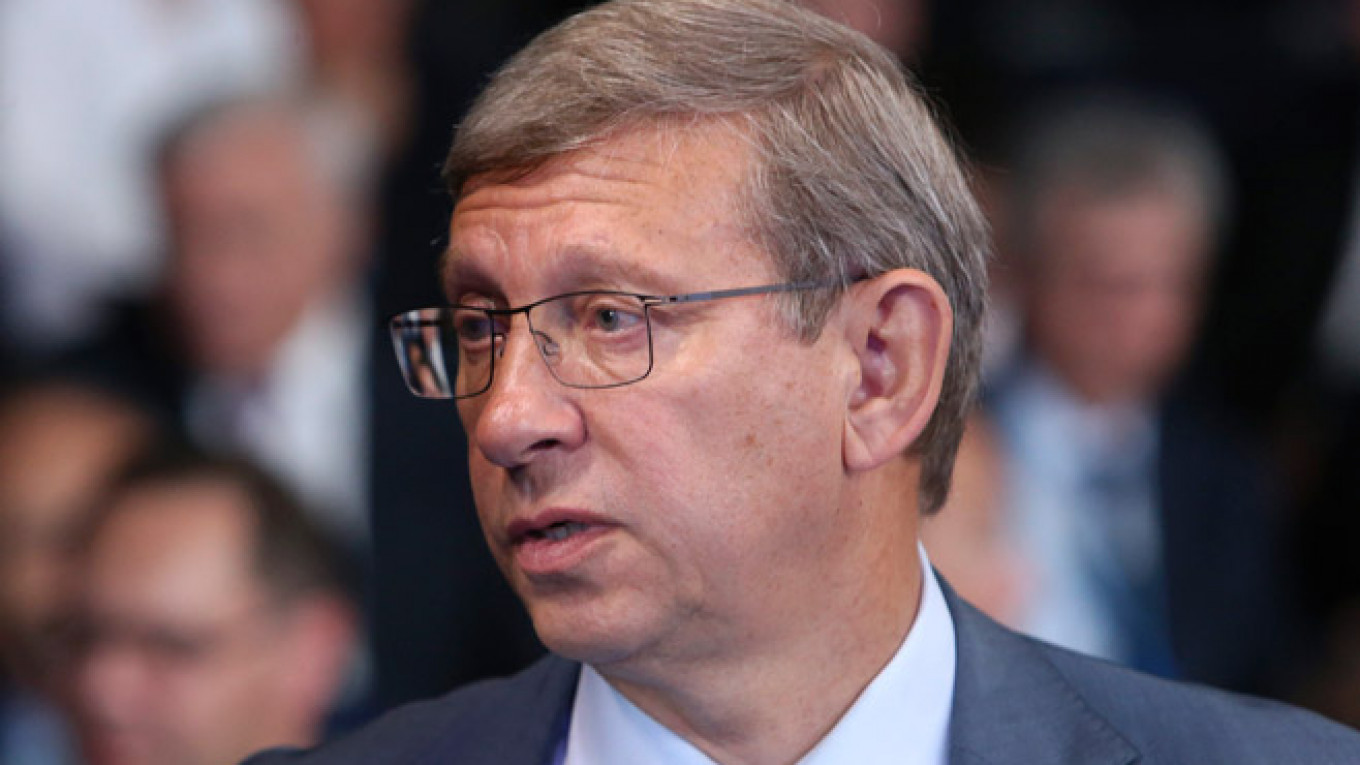Soon we might not recognize the names on the Forbes 100 list. The arrest of Vladimir Yevtushenkov, the main shareholder of the Sistema company, might presage a large-scale redistribution of assets, along with changes to a substantial part of Russia's elite.
Until now, the political system was based on the elite remaining loyal to their patron in the Kremlin, in exchange for privileges and a share of the country's wealth. The Russian people remained happily obedient thanks to rising income.
But the imminent recession undermines these two pillars of power by diminishing the money supply needed to buy off the elites and forcing down the salaries needed to keep the people content.
As revenues fall, attempting to secure the loyalty of the elite by threatening to deprive them of their privileges is no longer enough. Now the only way to ensure such loyalty is to threaten the elite with criminal proceedings should they challenge their leader.
In the initial stage of this "consolidation of the elites," the most potentially disloyal might be the first to suffer. These include businesspeople who built their fortunes without assistance from the leadership and members of the public sector who helped them protect their property rights and the emerging market economy.
Government theft of assets during the first stage of this process will deepen recession, intensify repression and increase the country's isolation. Moreover, it will create a vicious cycle enabling primarily those in the security services to come to power.
According to this scenario, raiders will seize assets and government posts they consider profitable, while accusing their victims of disloyalty. No personal friendships or arrangements made with the Kremlin will be of any help to these unfortunate businesses and individuals.
Only the most loyal, those who can prove that they would face imprisonment if President Vladimir Putin lost power, can hope to escape this new wave of raids. The redistribution of property and influence could even reach those considered loyal "pillars of the regime."
This stage of repression might single out businesspeople, public figures and managers of state-owned companies who got their fortunes and influence thanks to the Kremlin, but who are not at risk of prison time if the leadership changes. If this occurs, the public space will be given over to only the most loyal of Putin's supporters.
Valentin Preobrazhensky is the co-chair of the discussion club "Economics and Politics."
A Message from The Moscow Times:
Dear readers,
We are facing unprecedented challenges. Russia's Prosecutor General's Office has designated The Moscow Times as an "undesirable" organization, criminalizing our work and putting our staff at risk of prosecution. This follows our earlier unjust labeling as a "foreign agent."
These actions are direct attempts to silence independent journalism in Russia. The authorities claim our work "discredits the decisions of the Russian leadership." We see things differently: we strive to provide accurate, unbiased reporting on Russia.
We, the journalists of The Moscow Times, refuse to be silenced. But to continue our work, we need your help.
Your support, no matter how small, makes a world of difference. If you can, please support us monthly starting from just $2. It's quick to set up, and every contribution makes a significant impact.
By supporting The Moscow Times, you're defending open, independent journalism in the face of repression. Thank you for standing with us.
Remind me later.






